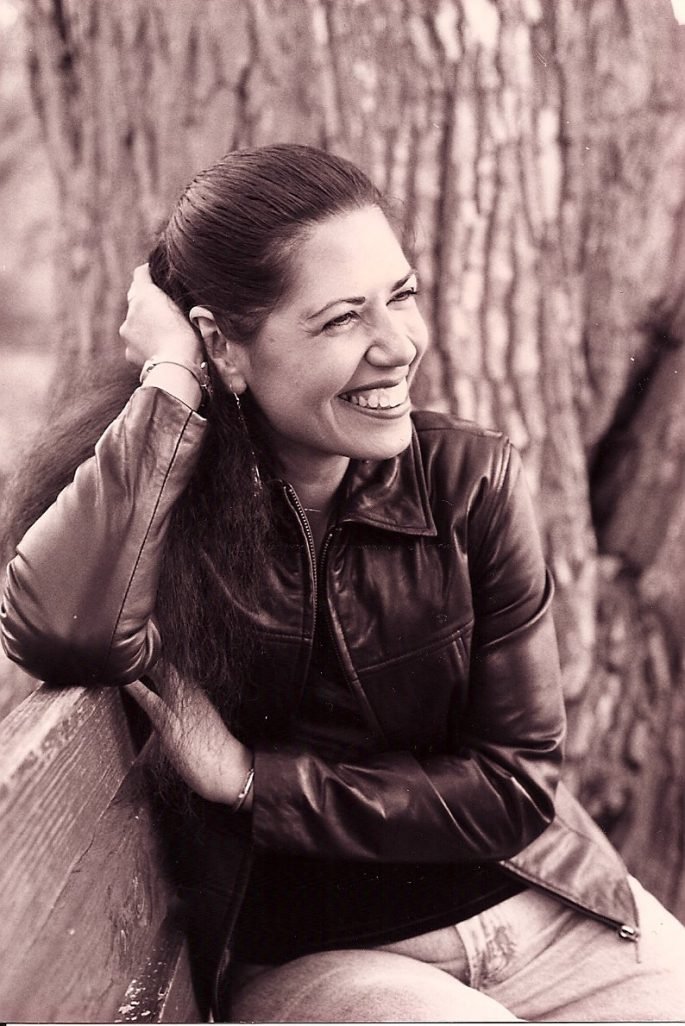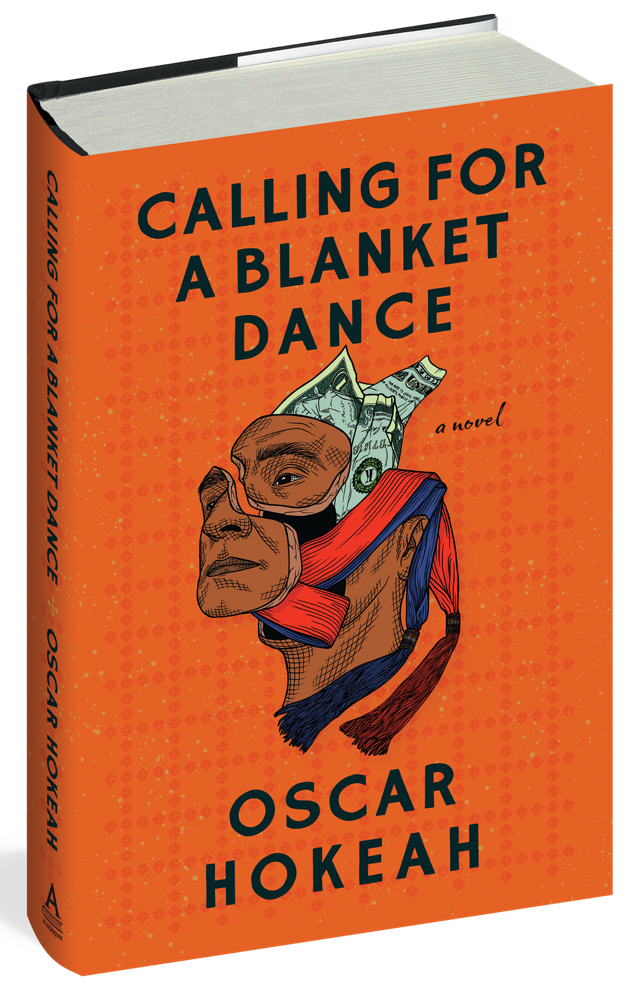Mona Susan Power's Praise for Oscar Hokeah's Debut Novel: CALLING FOR A BLANKET DANCE
You have to understand how big of a fanboy I am. When someone asks me for a book recommendation, Power's story collection, ROOFWALKER, is usually the first I name. It captures perfectly the flux between community/reservation life to an urban Native experience. I have a special love for the book because I taught it in my Native Lit class at the Institute of American Indian Arts. This was back in 2013 when the then Head of Creative Writing, Evelina Zuni Lucero, asked me to adjunct for a semester. When I compiled my list of Native fiction to teach, Mona Susan Power's book was at the top.

When my editor, Kathy Pories, of Algonquin Books asked me to reach out to Native authors to request blurbs, I immediately thought, it'd be a dream to have Susan Power's blessing. Then I figured it was far fetched. There was no way Susan Power would be able to read my book. Here I am a nothing little Native writer from nowhere Oklahoma. She's not going to respond to me. But Kathy assured me that writers are more inclined to respond to other writers in these situations. I'm so new to all this, being a debut author, and I'm still learning as I go. I trusted Kathy and thought, okay I'm going to give it a shot in the dark.

Mona Susan Power is most well-known for her own debut novel, THE GRASS DANCER, which was released in 1994. It's described as "the harsh price of unfulfilled longings and the healing power of mystery and hope. Rich with drama and infused with the magic of the everyday, it takes readers on a journey through both past and present—in a tale as resonant and haunting as an ancestor’s memory, and as promising as a child’s dream." Her debut novel is published by Penguin Random House, and won the Ernest Hemingway Foundation Award for First Fiction. The novel received praise from numerous news sources, including The New York Times, Washington Post, and the Chicago Sun. Additionally, Louise Erdrich and Amy Tan gave beautiful blurbs for the novel.

The short story collection I mentioned above, ROOFWALKER, was released in 2002 from Milkweed Editions, and described as "a world in which spirits and the living commingle and Sioux culture and modern life collide with disarming power, humor, and joy. The characters grapple with potent forces of family, history, and belief—forces that at times dare them to do more to feed their identity, and at times simply paralyze them. Rich with women who do things, this book gives voice to characters who make space for contradictions in their lives with varying success and, by extension, live the 'Indian way' to varying degrees." This short story collection resonated powerfully with students in my Native Lit class and I highly recommend instructors to add this one to their lists. Moreover, Louise Erdrich described ROOFWALKER as "A book of wild humor and compassion." I can't sing enough praise for this book. I loved the depth of the characters and how each story stacked atop each other like bricks, capturing an emotionally rich experience of a Native community.

Her latest novel, SACRED WILDERNESS, was released in 2014 by Michigan State University Press. It's described as "A Clan Mother story for the twenty-first century, Sacred Wilderness explores the lives of four women of different eras and backgrounds who come together to restore foundation to a mixed-up, mixed-blood woman—a woman who had been living the American dream, and found it a great maw of emptiness. These Clan Mothers may be wisdom-keepers, but they are anything but stern and aloof—they are women of joy and grief, risking their hearts and sometimes their lives for those they love. The novel swirls through time, from present-day Minnesota to the Mohawk territory of the 1620s, to the ancient biblical world, brought to life by an indigenous woman who would come to be known as the Virgin Mary. The Clan Mothers reveal secrets, the insights of prophecy, and stories that are by turns comic, so painful they can break your heart, and perhaps even powerful enough to save the world. In lyrical, lushly imagined prose, Sacred Wilderness is a novel of unprecedented necessity."
I was excited to cross one of her Facebook posts the other day, where she announced she had recently acquired a literary agent for a NEW NOVEL! Yes! I'm very excited for her next novel, A COUNCIL OF DOLLS, to find a home with a publisher. I'll be placing it on pre order ASAP! From what I understand, it appears to be in early stages with an agent, but I'll be keeping a look out for this novel in the future--hopefully near future.
Needless to say, after giving it a shot in the dark, I unexpectedly received a response from Mona. I couldn't believe it. I quickly clicked on the popup for Facebook Messenger and her message showed on my iPhone's screen. I read the words "thank you for teaching my work" and "congratulations on finding a wonderful publisher," and I half expected her to be too busy and not be able to read my debut novel. Then I read the words "I'd be honored to have an early read of your forthcoming work." I thought, what? So I read the words again, "I'd be honored to have an early read of your forthcoming work." I couldn't believe it. She said, "Yes." Mona Susan Power said, "Yes."
I clicked over to my email and typed as fast as my fat thumbs would allow, sending Kathy Pories and my agent, Allie Levick, the good news. They both emailed back quickly with excitement. We were all delighted to have Mona give the novel a chance.
Then came the waiting. Oh, the waiting. It's more the wondering. Maybe the not knowing, but hoping. I'm such a fanboy. I called a close friend and told her, "Susan Power is reading MY book." I was excited and nervous to hear her thoughts. What would she think of the main character, Ever Geimausaddle? How will she respond to the tri cultural intersections? Did I capture Oklahoma's intertribal dynamics well? If there is ever anyone you want to impress, it's someone you've admired for so long.
Then a few weeks passed and she responded. Again, I saw the notification for Facebook Messenger and I immediately clicked it as soon as it hit my screen. Then I couldn't believe what I read. It was filled with such wonderful praise. I just couldn't believe she enjoyed my book. I'm excited to share with you Mona Susan Power's praise for my debut novel:

"CALLING FOR A BLANKET DANCE is a stunning novel I couldn't stop reading! Oscar Hokeah writes from deep inside the heart of his communities, bringing life to generations of voices who became so real to me they felt like relatives. The reader can't help but invest in each character as they navigate bitter challenges, sometimes surprising themselves with their strength, their ability to survive and love. Hokeah's prose gorgeously weaves authentic local vernacular with the lyrical notes of hard-won insight. This novel belongs on every recommended booklist for fans of literary fiction!"
My debut novel will release next year: July 26, 2022. Right now it's available for pre order at most online retailers, but I do like to promote Bookshop because it gives a portion of the money to a local book store in your area.

I'm so very grateful Power was willing to give my novel a chance. And super delighted for her wonderful praise. I'm still floored by her generosity in helping a new Native writer come on the scene. It's not easy. Especially as you're learning as you go. I feel very humbled by all this. I really can't express enough how grateful I am.
The heart of the novel has to do with family, naw thep’thay’gaw, and how families show up for each other. The title of the novel comes from an important ritual in powwow culture. When we call for a blanket dance, in essence what we’re doing is asking for the community to step up and help out someone in need. The main character, Ever Geimausaddle, has a host of family members willing to do just that, willing to hear the call, step up to the edges of the blanket, and offer a piece of themselves for his greater healing.
The structure of the novel is told in 12 chapter/narrator fashion, and we hear from different family members–grandparents, aunties, uncles, cousins, and then in the last chapter Ever Geimausaddle speaks for himself. Ever’s identity becomes shaped by Kiowa, Cherokee, and Mexican relatives, and the crux of the novel has his family concerned for his changing identity as a man. His Cherokee grandmother, Lena Stopp, fears the brutal trauma he experiences as an infant will forever leave him “witched,” while his Kiowa grandfather, Vincent Geimausaddle, fights to change Ever’s fate with his dying breath. Moreover, his Mexican American cousin, Araceli Chavez, is the conduit for deep familial healing. So family member after family member step up to the edges of the blanket to offer a piece of themselves. But will this be enough?
As Ever grows into adulthood, readers will get to explore large and unique themes situated in tribally specific values, like tribal matriarchy, communal ideology, and collective identities. Furthermore, readers will follow Ever Geimausaddle through the ups and downs of living an intertribal and multicultural life in Oklahoma, offering a slice of America very few know about.